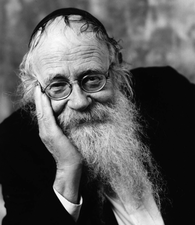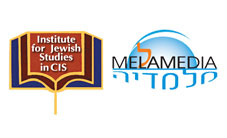Current Big Question
ЗАЧЕМ should we care?
The three weeks leading up to the 9th of Av – this year, between July 19th and August 9th – are the saddest days in the Jewish calendar. We mourn the destruction of the Temple and other СОБЫТИЯ that took place more than two millennia ago.
The Big Question is: ЗАЧЕМ should we care? How do we find meaning today in this painful and distant past?
Add your own voice below.

The Jewish festivals are first and foremost historical festivals: each one is a remembrance of a certain event in Jewish history. But their essence goes far beyond that. Whenever we remember a historical event, we connect ourselves not so much with the facts, but rather with their psycho-logical and emotional significance. If we want to understand the personal, inner meaning of a festival, we should look to its intrinsic spiritual essence. And what is more, we should see the festivals as internal СОБЫТИЯ in the life of the individual, which are reflections of the collective life of the nation. This approach will open a door for us toward a wider, albeit not immediately apparent, understanding.
The gloomiest day in the Jewish calendar is Tisha b’Av. A long series of national disasters are identified with this date. In every generation it has been looked upon as the essence of all national mourning, and the prayers of Tisha b’Av recall the sufferings of our people throughout our exile, not only the destruction of the Temple. It is the symbol of all that occurred thereafter, not an isolated event. It is a key to, and a definition of, all the troubles of the people of Israel. It is this destruction that lifts isolated СОБЫТИЯ, persecutions, exiles, and oppressions from the plane of mere historical episodes and gives them a transcendent significance.
-
http://www.abitoffthetop.com Mike
-
Stanosur
-
Sheldon Gottlieb
-
Bernard Yablin
-
Stanosur
-
Jfrost
-
http://www.globalnazarenelambshope.blogspot.com Gary1952
-
Sam
-
SuzyInOz
-
Sam
-
james harlow
-
Sam
-
http://www.globalnazarenelambshope.blogspot.com Gary1952
-
Marty
-
SuzyInOz
-
Ger
-
Batia75
-
Julie
-
RBaruch
-
Radulovich
-
Hej
-
Ed
-
Rev. Gabbai Eli Shirim Lester
-
Larry Snider
-
Jadeaustralia
-
Clifford Dubery
-
Patrick Sweeney
-
Stanosur
-
Nathan Kruman
-
http://www.facebook.com/people/Yoseph-Schreiber/100000483627021 Yoseph Schreiber
-
http://www.facebook.com/people/Yoseph-Schreiber/100000483627021 Yoseph Schreiber
-
Rick Townsend.
-
Arielich
-
Patrick Sweeney
-
Patrick Sweeney
-
Patrick Sweeney
-
Jack Bieler
-
Sam
-
Sam
-
Justinnewton1
-
Patrick Sweeney
-
Sam
-
Anonymous
-
Phahn41
-
Sam
-
Patrick Sweeney
-
Patrick Sweeney
-
Sam
-
Jimmie
-
Patrick Sweeney
-
Sam
-
Patrick Sweeney










